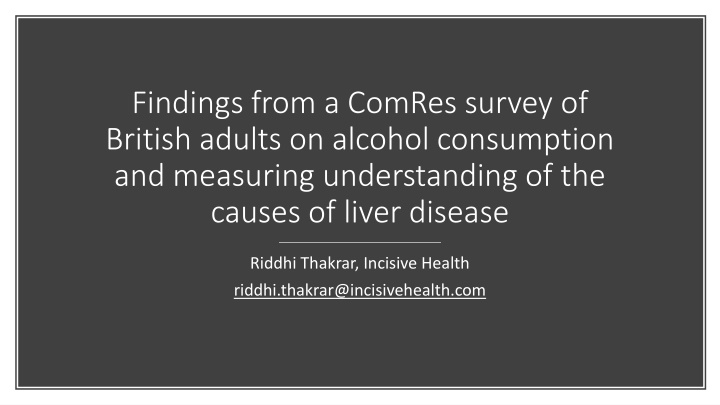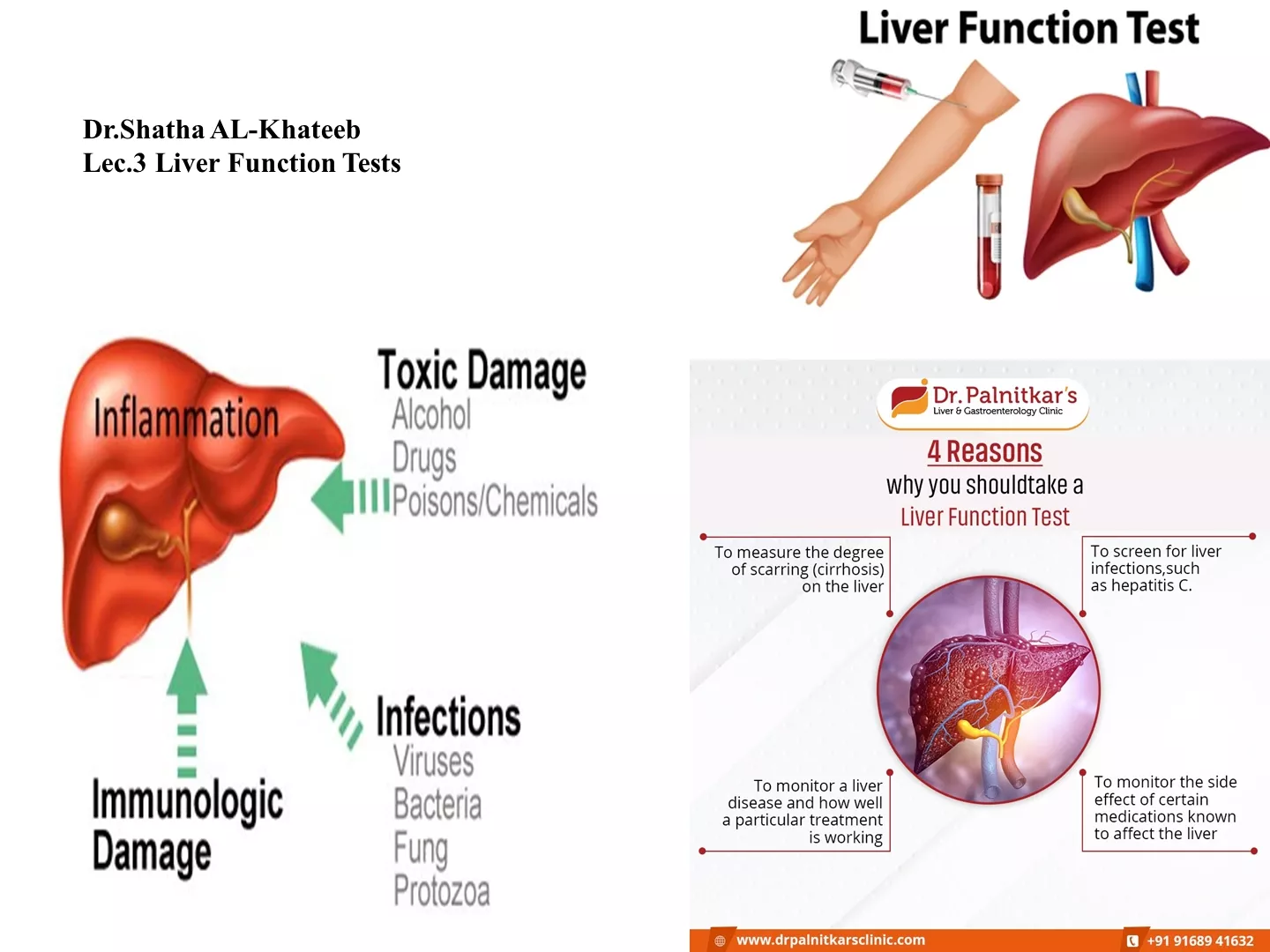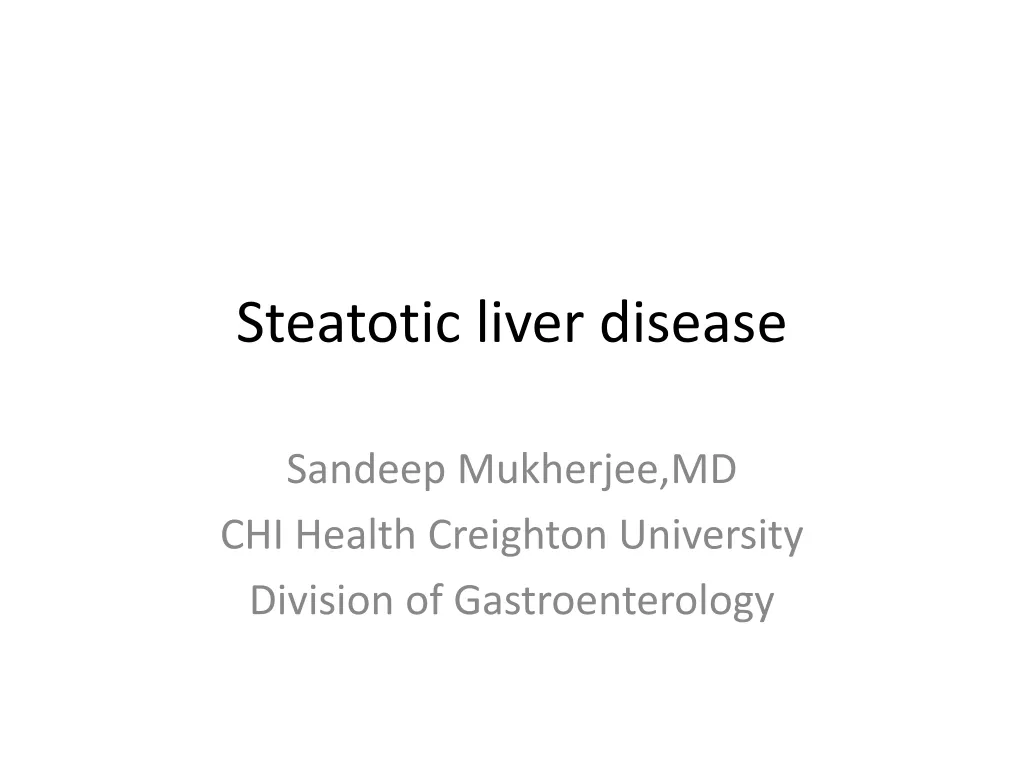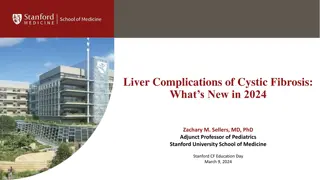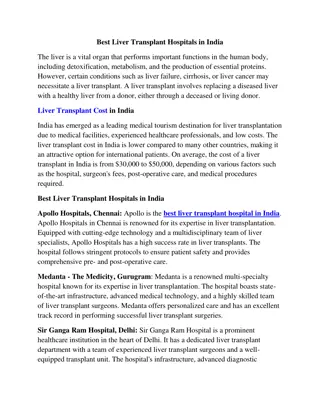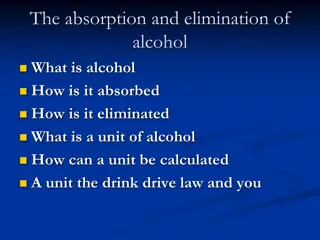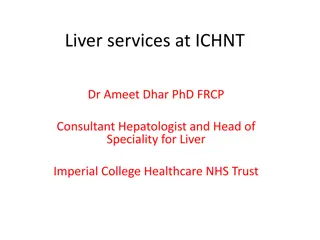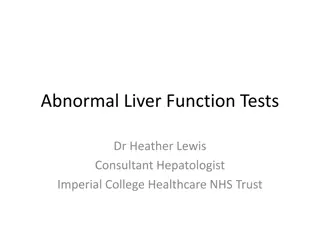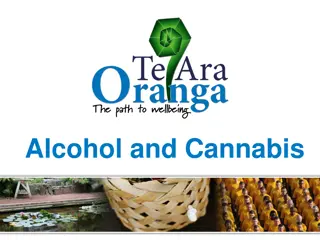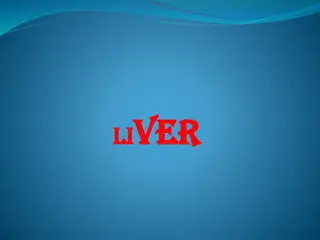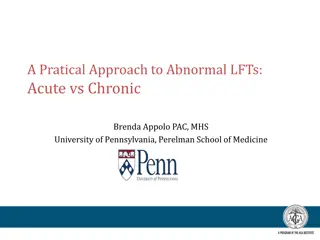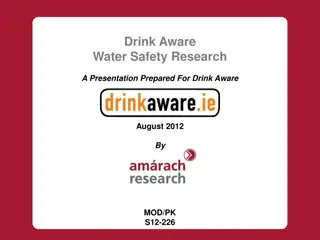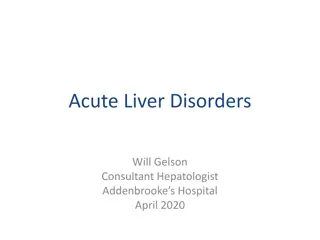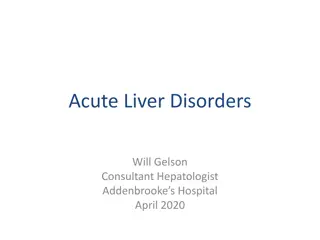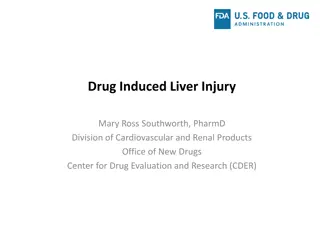Insights on Alcohol Consumption & Liver Disease Causes among British Adults
A ComRes survey conducted in May 2019 with 2,016 British adults explored alcohol consumption and understanding the causes of liver disease. Findings reveal perceptions on liver disease causes, impact of alcohol consumption on health, weekly alcohol unit guidelines, combatting obesity, and attitudes towards measures to reduce obesity in the UK.
Download Presentation

Please find below an Image/Link to download the presentation.
The content on the website is provided AS IS for your information and personal use only. It may not be sold, licensed, or shared on other websites without obtaining consent from the author.If you encounter any issues during the download, it is possible that the publisher has removed the file from their server.
You are allowed to download the files provided on this website for personal or commercial use, subject to the condition that they are used lawfully. All files are the property of their respective owners.
The content on the website is provided AS IS for your information and personal use only. It may not be sold, licensed, or shared on other websites without obtaining consent from the author.
E N D
Presentation Transcript
Findings from a ComRes survey of British adults on alcohol consumption and measuring understanding of the causes of liver disease Riddhi Thakrar, Incisive Health riddhi.thakrar@incisivehealth.com
Methodology ComRes poll conducted in May 2019 2,016 British adults aged 18+ surveyed 16 questions
To the best of your knowledge, which, if any, of the following are the three main causes of liver disease? Please select up to three options. 89% 90% 80% 70% 60% 50% 40% 35% 40% 26% 24% 30% 14% 20% 12% 6% 10% 1% 1% 0% Drinking harmful levels of alcohol Obesity Contracting viral hepatitis Smoking Inherited, genetic factors Blockages to the gallbladder Lack of iron in the diet Sleep None of the above Don't know deprivation
Question to current drinkers: How, if at all, do you consider your current level of alcohol consumption to impact your health? 5%3% 7% 7% Very positive impact Somewhat positive impact 21% No impact Somewhat negative impact Very negative impact 57% Don t know
The UK Chief Medical Officers guidance advises it is safest that men and women drink no more than a certain number of units of alcohol a week on a regular basis in order to minimise health risks. The number of weekly units is the same for both men and women. How many units do you think that is? 33% 35% 31% 30% 25% 25% 21% 20% 19% 20% 16% 13% 15% 10% 7% 6% 6% 3% 5% 0% 0-5 Units 6-13 Units 14 Units (Correct) 15-19 Units 20+ Units Don't Know Safe Drinkers At Risk Drinkers
Would you say the following are doing too much, too little or the right amount to combat obesity in the UK? About the right amount Too little Too much Don t know Individual citizens 68% 17% 1% 14% The food and drink industry 61% 25% 4% 11% Regulators of fast food advertisements 61% 23% 4% 13% Soft and sugary drinks manufacturers 59% 25% 6% 10% The Government 47% 32% 5% 16% Primary and secondary schools 34% 43% 4% 19%
To what extent, if at all, do you support or oppose each of the following measures aimed at reducing obesity? Neither support or oppose Support Oppose Don t know Making healthy food and drinks cheaper than unhealthier ones 81% 10% 4% 5% Reducing children s exposure to unhealthy food and drink advertisements 78% 13% 4% 4% Reducing the sugar content in foods 77% 11% 8% 4% Reducing the concentration of fast food outlets, particularly outside schools 5% 72% 16% 7% Charging food and drinks manufacturers a levy on unhealthy foods and drinks 55% 19% 7% 6% Banning supermarket price promotions on unhealthy foods 5% 50% 22% 23%
To what extent, if at all, do you agree or disagree with each of the following? Please select one per row. Labels on alcoholic drinks contain enough information on health risks for the public to make informed choices More calorie information on labels of alcoholic drinks would help consumers make more informed choices 5% 8% Agree 20% Neither agree or disagree Disagree 42% 28% 52% Don t know 23% 22%
Conclusions There is a strong need to raise public awareness of the health impact of liver disease and its risk factors The polling helps make the case for many of the public health interventions the Lancet Commission is calling for
